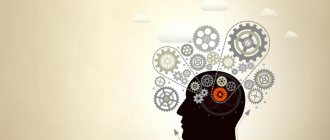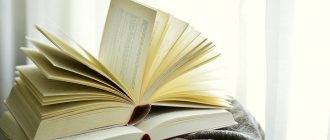Preparing for the exam in 1 day is a completely doable task. According to the principle of a sprinter, you need to make the maximum breakthrough in a short period of time. However, with mental stress, more subtle and complex mechanisms operate than with muscular stress. To be able to remember a huge amount of information and learn tickets in 1 day, you need to use all possible methods of improving brain function, saving time, and memorizing. The final result of the exam depends on how the student improves the efficiency of the learning process.
Determine your learning style
We are all different, so our exam preparation strategies will be different.
Start from your individual characteristics. If you are an auditory learner, read textbooks and notes out loud, if you are a kinesthetic learner, write cheat sheets based on your notes and make an answer plan. Another effective method is mind mapping. This is a great way to structure information, refresh your knowledge and quickly understand the essence of the subject, even after a long time. We talked in more detail about how to make mental maps and how to work with them here.
What questions should you teach first? If during the semester you have a good understanding of the subject, proceed to questions about which you have at least some idea.
If each new block cannot be understood without the previous one, then there is only one option: learn everything strictly in order.
It also makes sense to start with difficult questions and allocate enough time to study them. It's better to deal with them before you get tired and lose concentration. Leave easy questions for later.
And be consistent. Stick to your chosen strategy, even if you start to panic as the exam approaches.
Methods for quickly memorizing text
The question of how to learn a large text in 5 minutes has worried students and schoolchildren at all times, so many tricks and memorization techniques have accumulated.
When choosing your signature method, be guided by what type of sensory memory is more developed than others: visual or auditory. If it’s difficult to decide, perhaps you are one of those people who absorb information using logic.
If you have a good visual memory:
- read the text, and then take a bright marker and mark all the key words, definitions, conclusions. This is how you structure the material and create reference points for memorization;
- To memorize foreign words and terms, use tablets on which the necessary information will be briefly written down. Hang these signs around your home to read throughout the day.
If you remember information by ear:
If logical thinking predominates in you:
- highlight cause-and-effect relationships in the text, identify all terms and find out their meaning, mentally simplify the material. This method is useful for everyone, because it is difficult to imagine how you can quickly learn something incomprehensible;
- Instead of memorizing the text alone, try explaining or retelling it to another person in your own words.
However, any methods will be poorly effective if you try to memorize everything in one night. Information learned quickly evaporates from memory, and repetition is required for long-term effects.
Not everyone is born with a good memory, but it can be developed and made your main advantage. In the free newsletter from Skysmart “Study without tears,” psychologist Ekaterina Murashova shares life hacks with parents: how to make a child fall in love with studying, control less and not worry so much about him. Join us!
“3–4–5” technique
Image: Giphy
A good method when you need to prepare for an exam in a short period of time. It will only take three days, but there is a lot of work to be done. Every day you need to work through all the material, but at a different level, constantly going deeper.
On the first day, you read your entire notes or study guide to refresh your knowledge of the subject, or, roughly speaking, to get involved. Conventionally, we believe that you can already pass the exam with a C grade.
On the second day, you deal with the same questions, but using the textbook to learn more details and subtleties. If you prepare diligently, you can already count on a four.
On the last day, you perfect your answers: repeat, fill in the blanks, memorize. After the third day, you are ready to pass the exam with flying colors.
Hope for "maybe"
After studying about half of the tickets in 1 day, the student may decide that this is enough. Unfortunately, hoping for something “maybe” leads to failure in the exam. It is the missing material that is most often caught. In order not to regret the effort expended, you need to prepare a short answer to each of the questions. It is always better to answer at least something on the ticket than to remain silent in front of the examiner.
Each teacher has a number of favorite topics that are revealed during the learning process. This material needs to be learned very well, since additional questions may be related specifically to it.
Study varies by subject
Not only you, but also the subject you are studying has individual characteristics. For example, exact sciences - mathematics, physics - require practice. For the humanities, it is important to be able to process large amounts of information, remember dates, names, and definitions.
But, I repeat, you need to approach the study of any subject actively: delve into the question and strive for understanding.
The exam format is also important. If you are preparing for an oral exam, speak your future answers out loud. My favorite tactic is to retell the material to someone at home or, when they are not enthusiastic, to myself in front of the mirror. It’s even better if someone not only listens to you, but also asks questions when something is not clear.
If you are preparing for testing, you should take a dozen standard tests, write down your mistakes, repeat problematic topics and solve everything again.
If the exam is written, you need to think about the structure of the answer in advance.
Selecting a location
To remember the material for the exam, 24 hours will be more than enough. However, if the student does not allocate the available resources correctly, he risks receiving a failing grade during the test or oral response. One of the most common mistakes students make is studying in the wrong place. For example, some of them do this in a room with a working TV or computer, others prefer some cafe, where at any moment someone can be distracted from completing an important task. However, here is a small list of places that are almost ideal for studying:
- The library is not only quiet, but you can also find almost any necessary theoretical information that will be on the exam. In addition, people for whom studying is not an empty phrase often gather in such places, so you can ask them for help if you can’t solve a problem. The disadvantage is the fact that most libraries are closed at night, so you will have to study during the day for a maximum of 12 hours.
- A room isolated from the outside world. We are not talking about a personal room where there will be a TV, a refrigerator and other delights of the modern world that tempt the student to take a break from studying. It is important to choose a room where no one will disturb the student, but at the same time there will not be unnecessary objects for which a “break” can be taken.
- Apartment and house. In most cases, your own home or apartment may also be suitable for studying, but before you sit down to study a subject, you will have to not only make yourself an “iron” promise that there will be no interruptions, but also eliminate the factor of temptation itself. For example, you should put the video game console away in some drawer, and also turn off the TV and give the remote control to your parents or roommate for a couple of dozen hours.
As for the requirements for the room, they should be the most common: a desk, a comfortable chair, good lighting, sound insulation. It is also necessary to turn off the smartphone so that social networks and calls from friends do not distract the student from the important process. Once the appropriate environment has been created, you can move on to the learning process itself.
A few more tips for preparing for exams
- Take breaks. This will help you relax and sort out new information.
- Turn off your phone, don't go on social networks, don't get close to the TV. If you can't cope with temptation, read about how to deal with distractions.
- Get enough sleep.
- Don't forget about food: it will give your body additional strength. However, you shouldn't overeat. Usually, after an overly heavy lunch, you start to feel sleepy, and you don’t feel like studying at all.
- Avoid stressful situations and negativity from other people. The atmosphere during classes should be as favorable as possible.
- Don't rely too much on cheat sheets and the ability to cheat. And if you don’t know how to copy well (you must agree, you need to be able to do this too), you shouldn’t even start.
- Set up a place for studying: bright, comfortable, with all the necessary materials at hand. The bed is not the most suitable option: there is a high probability of falling asleep on a boring topic.
- Make bulleted lists: they are easier to remember.
- Playing sports will help you distract yourself and stretch the muscles that have become stiff during prolonged sitting. You can also take your time and think about difficult questions while running, biking, or similar physical activity.
- If you feel that you are not in the mood to study, start with the topic that seems most interesting to you. This will help you get into the groove.
- Go for walks in the evening. During preparation, nerves are usually on edge, so you need to relax a little.
- Make a clear preparation plan.
What to do with fatigue
There is a high probability that the preparation regime for the upcoming exam may be disrupted due to the student’s extreme fatigue. But there is no time to waste, so you will have to resort to stimulating activity by any available means. The most famous method to cheer up is to drink coffee. You need to stock up on natural black coffee and dark chocolate in advance. If you add cream or milk to your coffee, your brain will get extra energy from carbohydrates. It is recommended to eat bread with honey and nuts. You should not use energy drinks. The boost of vigor will quickly pass, and this will be followed by even greater fatigue.
Physical activity is one of the most effective stimulants of mental activity. Head rotations improve blood supply to the brain, enriching cells with oxygen. A few minutes of push-ups, squats, torso and arm rotations, jumping and even dancing will restore your energy potential. It is also recommended to do eye exercises to relieve eye strain.
What's the best way to record lectures: by hand or on a laptop?
If the typing speed is high, you can write lectures on a smartphone or laptop. Apply the same rules as when writing - abbreviations, highlighting, lists.
But you shouldn’t write the entire text under dictation, as this will negatively affect memorization. You need to take notes in any form thoughtfully, analyze the information, and write down only the main facts.
You can use a voice recorder to then listen to the lecture and take notes at any convenient time.
But most teachers and scientists believe that recording lectures by hand is more useful. The student needs to listen to the lecture thoughtfully in order to capture only important points. This helps you better understand the material.
The ideal option is to write it down on your laptop, then rewrite it by hand.
Methods and recommendations on how to better remember information
The mnemonics system is a method of memorizing texts, names, numbers, dates, foreign languages, and so on. It includes many techniques, among which everyone will find the most effective for themselves:
How does the brain absorb information?
- Chain. A correctly created sequence, when each element is connected to the next, allows you to quickly learn and remember information.
- Cicero's technique. Based on the principle of bright and large supporting images that evoke an association.
- Pictogram. A small sketch should correspond to an event, evoking certain associations and memories.
- Matryoshka. A separate “fragment” of information is placed in another smaller one, for example, the English words “write – writer-copywriter” and so on.
- Associations. The easiest way to remember names and dates. The former can be correlated with outstanding personalities, and the latter with important events.
Each recommendation is universal and allows you to memorize even long numerical series, theorems, mathematical formulas, and rules. The main thing is to always understand that even the most complex expression/formula is easiest to remember from individual fragments that add up to a whole.
5/5 — (3 votes)
Increasing writing speed
The easiest way is to artificially increase the volume. But this leads to the fact that it is impossible to understand what is written. Therefore, we need to look for other ways.
Effective methods to increase writing speed:
- use generally accepted abbreviations - WHO, IMF;
- write the beginning and end of a word - quantity;
- use mathematical symbols - + instead of the word “together”, an arrow instead of the word “therefore”;
- underline and stroke - a wavy underline indicates an adjective, in combination with the abbreviation "number." the word “numerical” is obtained;
- use shorter words from other languages;
- skip vowels - but this method is not suitable for writing unfamiliar terms.
It will take time to master all these methods. But then recording lectures will be much easier. True, it will be difficult for classmates to decipher what is written.
When does the brain remember information best?
The human brain is not capable of absorbing absolutely all the material it reads or remembering every detail it sees. It works “selectively”, but you can learn to create conditions that allow you to concentrate its resources in the right direction:
- Visual function is critical. During the reading process, the brain does not “add” letters, but sees the text as a picture. A person should quickly skim the pages with his eyes, and not read every word. We remember better when we see, which is why many modern educational programs use charts, graphs, and pictures.
- A small knowledge “hidden” in a big one will never be forgotten. You always need to make diagrams or lists, and then fit individual fragments into the overall picture. Such notes should be kept in a visible place and without realizing it, you will find that you remember everything.
- A rested brain remembers information correctly. An experiment was conducted. One group of participants was tested after 4 hours of sleep, and the other after 12. The latter showed much better knowledge than the first. Another study clearly demonstrated that restricting sleep for the next 30 hours after learning new material nullifies all efforts.
- Alternation helps you remember data better and for a long time. During the experiment, it was found that pictures in different styles were remembered better than in one.
To summarize, our brain works correctly for memorization when a person gets enough sleep, alternates audio, text, visual information, and sees visually studied material.
Ways to remember information better
Rhyme
At school we were taught to memorize not long complex rules, but short rhythmic rhymes. This also works in adulthood. If you can’t rhyme the information you need, you can select lines and phrases rhythmically, and also combine them with the motive of your favorite song.
The technique is suitable if you need to remember a sequence of numbers that are not related to each other (for example, the number of a bank card or a friend’s car, a telephone number or a combination for an intercom).
Example:
We need to remember the phone number 151-46-63. The last number is three, so you need to find a rhyme for it, for example, “speak.” The result will be a rhyme like this:
“One, five, one, four, six, six, three. Do not tell anybody".











